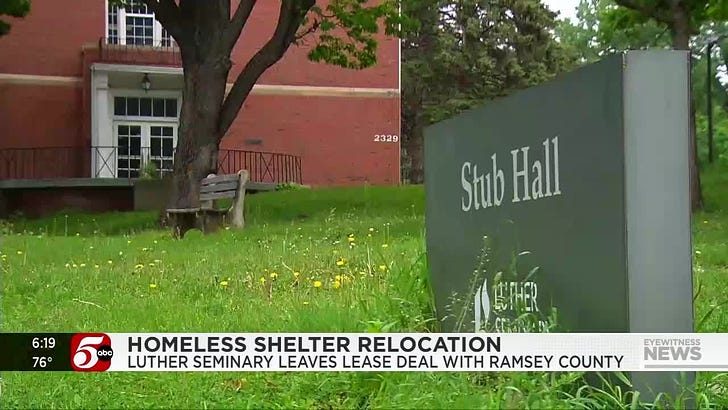
Discover more from Lutheran Confessions
Discipleship is a cringy word. Quite a lot of religious language is equally cringy, but I find the use of discipleship especially egregious because of context. As just one example, the same churches that talk a lot about “discipleship” also feature pages on their web sites introducing their church councils made up of “business men” and then pictured with their wives.
Right away you learn (from what they show you) that discipleship is primarily a man thing, very heterosexual, directed toward raising a “nuclear” family, middle class and capitalist.
How much discipleship is about authority and control can be seen by considering your position within the discipleship culture. Are you someone “being discipled”? Or are you “discipling”? In almost all formulations of this process, there’s a paternalistic dimension verging on the creepy. You can see this illustrated most clearly in local coffee shops in our community, where older men will be seated across the table from doe-eyed college students, Bibles opened, and the old men explaining to the young women the importance of “submitting to God’s will.”
Where does one see discussion of “discipleship”? If you are part of a progressive Christian community you may seldom hear or read the word. But as a progressive pastor who lives constantly adjacent to the dominant evangelical culture, I frequently see it in posts by thought-leaders. For these leaders, there is a lot of hand-wringing over defining the term, questioning whether we do it enough, asking themselves whether, in all their work reaching “the lost” for Christ if they are in fact truly making disciples.
The driving force behind this concern for discipleship is a modern interpretive move prioritizing “the Great Commission” at the conclusion of the gospel of Matthew. The redactor of Matthew’s gospel has Jesus saying, during his resurrection appearance, “Go and make disciples of all nations.”
This “commission” has been a justifying text for missionary work across the globe. Because it’s read as a command (Go!) and because it’s Jesus telling the disciples to “make” other disciples, it ends up serving not only as a command but also as an intrinsically patron-client model: “We are disciples, and we are supposed to go make more people like us.”
They presumption in this model is that some are already disciples, know what discipleship is, and therefore can pass that on to others. Must pass that on to others.
It’s hella presumptuous and doesn’t take “no” for an answer.
However, in this model, what makes someone “ a disciple” remains somewhat unclear, which is why if you google “discipleship” you’ll get top hits for “the five marks of disciples,” the “four marks of discipleship,” the “seven marks of discipleship,” the “three Ds of discipleship,” etc.
But generally speaking, the assumption is that discipleship is “growing into maturity in Christ.” Eventually, if you grow into Christ enough, then presumably you can (and must) then “lead others to Christ.” You do this by reading the Bible, submitting to God’s will, etc.
Alright, enough of that. I’m sure all the thought-leaders can quibble around the edges of the definition, and will, but what I want to do is try and come at this from a more secular angle of “formation.”
I’m going to assume, first of all, that almost everyone agrees that human beings can mature, grow, learn, develop. Even if you find “discipleship” cringy I bet you are engaged in some form of secular “discipleship” in some aspect of your life. Maybe you are taking piano lessons, or use Duolingo, or are part of a mentorship team at the workplace. In each of these instances, there is a certain body of knowledge, or specific practices, that you believe you can get better at, or learn, through an intentional relationship and/or rehearsal.
However, there are a couple of ways that Christian “discipleship” is set apart from these secular formation practices. First, it’s inviting emulation of one particular person (Jesus), which is kind of unusual: I mean I guess there are Elvis Presley impersonators and some people probably want to be just like RBG, but mostly when we talk about formation in other contexts it’s formation into a kind of role or profession, or for a skill or knowledge set.
Second, it’s assumed this specific formation is a requirement for everyone. Everyone is supposed to be a disciple. I guess like everybody is supposed to brush their teeth.
So why then do I find discipleship so creepy? I think it boils down to the way in which when the term is popularly used it means formation into a fairly narrow “form of life,” whereas if we are to examine discipleship and its goal truly in the way of Jesus, discipleship is precisely not guidance into a narrow form of life but rather anti-guidance into radical freedom.
I’ll need to unpack that.
We can start by quoting Bonhoeffer’s popular book on Discipleship, which is a book-length examination of the Sermon on the Mount. At one point he writes,
Discipleship is not limited to what you can comprehend - it must transcend all comprehension. Plunge into the deep waters beyond your own comprehension, and I will help you to comprehend even as I do. Bewilderment is the true comprehension. Not to know where you are going is the true knowledge.
If you consider the Beatitudes (included in the Sermon on the Mount) you can understand why Bonhoeffer emphasizes bewilderment. The Beatitudes make statements that are beyond comprehension. Like, “Blessed are the poor.” “Blessed are those who mourn.” “Blessed are the persecuted.”
This is the opening sermon from the same guy who will, just a few short chapters later, be arrested and crucified on a cross. A guy who never marries, never opens a successful business, who never figures out how to secure a mortgage and buy a house. And whose own disciples at the time of his death scattered, betrayed him, and largely misunderstood the teachings they’d been receiving in word and deed over the course of a couple of years.
All of this is to say, if a community is going to attempt to be imitators of Christ, literally, then such a community will absolutely not look like most of the communities in our culture that throw the word “discipleship” around with alacrity.
So a thesis: Discipleship will almost always be found under the form of its opposite.
I think this is why quite frequently we will see examples of “true” discipleship in surprising places, at surprising moments, performed by surprising people, and why a hallmark of actual discipling communities may be their reluctance to even use that term. Because honestly even though that Great Commission text is read as a “must,” the real nature of discipleship means whatever it is that it produces cannot be churned out like a Model T on the assembly line.
It’s too free for that. Both in the economic and existential sense of that term.
Instead, we might say that we are invited into a consideration of how “living like Jesus” will always catch us by surprise because Jesus himself was a surprising figure to his community (both the empire and the religious establishment and his own disciples).
We will have to consider that, as much as in a community like a progressive church we will want to form our youth, and be formed together, into certain practices of resistance, certain commitments and ways of living in the world, nevertheless humans will be humans and inasmuch as our particular human community strives to live like the “truly Human One” (Jesus), we will catch the world, ourselves, and one another by surprise.
What does this mean in practice? I think what it might primarily means is that a) we can consider some of our formation practices as themselves “discipleship” just with less of the cringy religiosity of the traditional use of that term (I’m thinking here of anti-racism work, or environmental activism, or the lifelong struggle to disentangle ourselves from the tempting hegemony of neoliberalism), and b) the primary form “discipleship” actually will take is primarily a critique of all the other discipleships. By which I mean, and I’m sorry I can’t then list an assignment for all of us of how to live this, but basically discipleship in Jesus is simply listening to Jesus when he says, “You’re more free than you think.”
Subscribe to Lutheran Confessions
Reflections from a progressive Lutheran pastor in the South.






